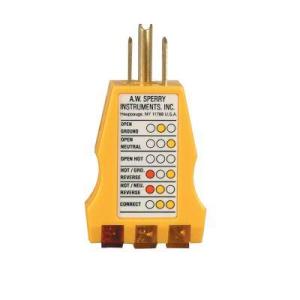Forum Discussion
pianotuna
Aug 10, 2013Nomad III
Hi vic46,
My average for camping is about 70 nights per year. I started my "adult" RVing 11 years ago. so that is about 770 nights. Of those, less than 10% were at campgrounds. Of those campgrounds only 2/3 had any power. I am now semi full time and have spend over 70 nights since May 1 boondocking. I have no need at all for more surge suppression than I already have. They are nearly unnecessary for a 30 amp service, and nearly useless for my needs.
50 amp service is a different story. Risks are far higher of a loose screw on a neutral which is a non issue for 30 amps. (but still quite small)
It may be better to look at surge protected autoformers, before using something that cripples the use of the electrical system by cutting off the power at what may be too low a voltage to prevent damage to electric motors. My comfort level is 108 volts or above.
Here is what I use before I plug in anywhere.
kill-a-watt
watt meter

Outlet tester.
outlet tester

My average for camping is about 70 nights per year. I started my "adult" RVing 11 years ago. so that is about 770 nights. Of those, less than 10% were at campgrounds. Of those campgrounds only 2/3 had any power. I am now semi full time and have spend over 70 nights since May 1 boondocking. I have no need at all for more surge suppression than I already have. They are nearly unnecessary for a 30 amp service, and nearly useless for my needs.
50 amp service is a different story. Risks are far higher of a loose screw on a neutral which is a non issue for 30 amps. (but still quite small)
It may be better to look at surge protected autoformers, before using something that cripples the use of the electrical system by cutting off the power at what may be too low a voltage to prevent damage to electric motors. My comfort level is 108 volts or above.
Here is what I use before I plug in anywhere.
kill-a-watt
watt meter

Outlet tester.
outlet tester

vic46 wrote:
Great idea, if you happen to be locking at the thing when **** happens. And it also monitors ONLY voltage level. There is a whole lot more that can go wrong. As alluded to above, the price reflects the capability of the device. The PI EMS is expensive however, it's real cheap insurance relative to the electronics exposed to the many risks that can occur in an electrical system. You need to do some research to understand the capabilities of an EMS (energy management system)
About RV Tips & Tricks
Looking for advice before your next adventure? Look no further.25,184 PostsLatest Activity: Feb 24, 2026